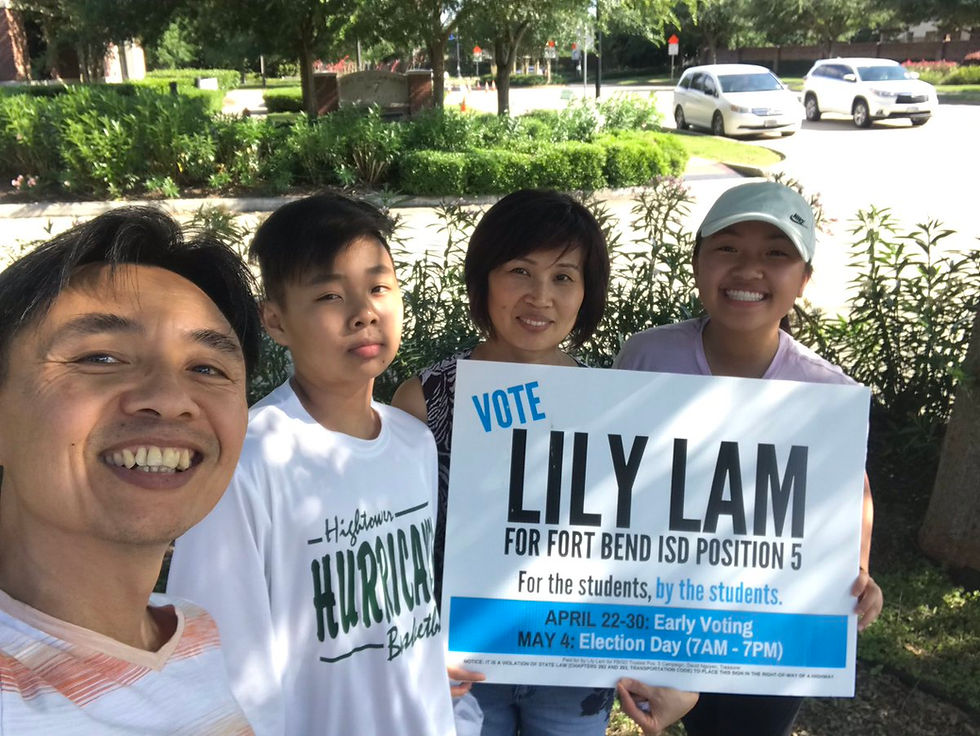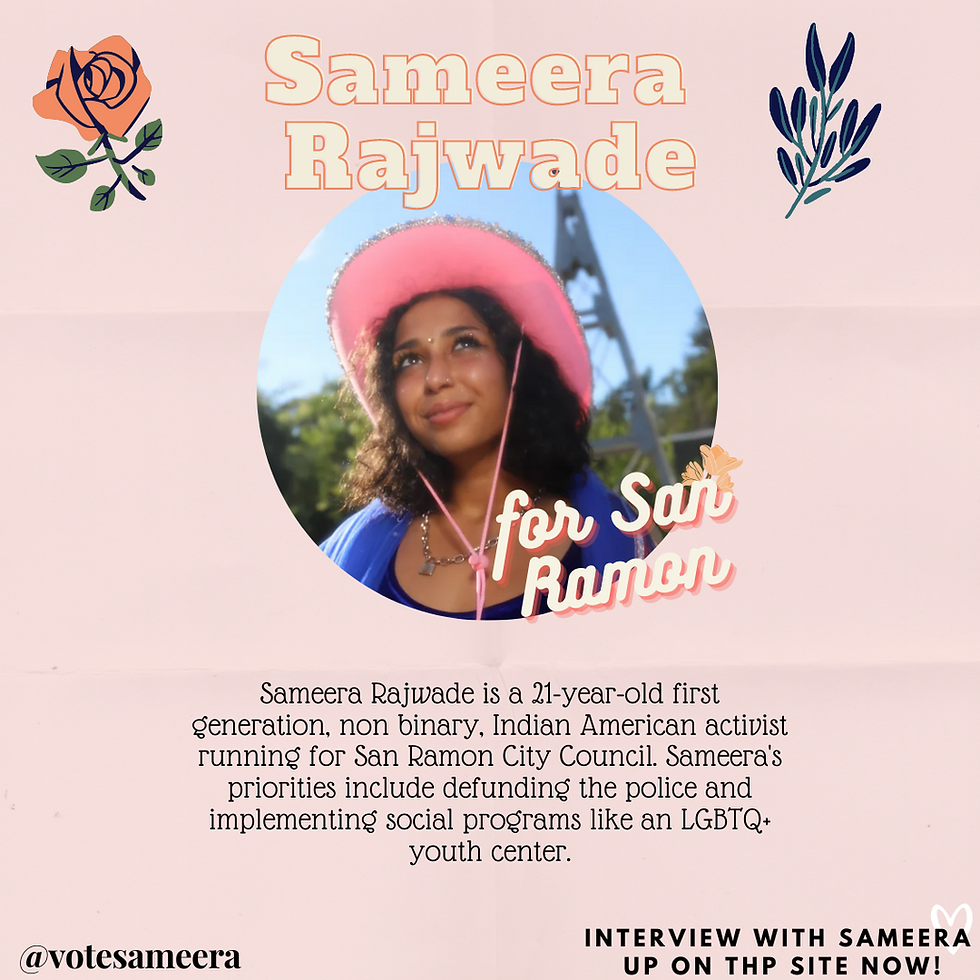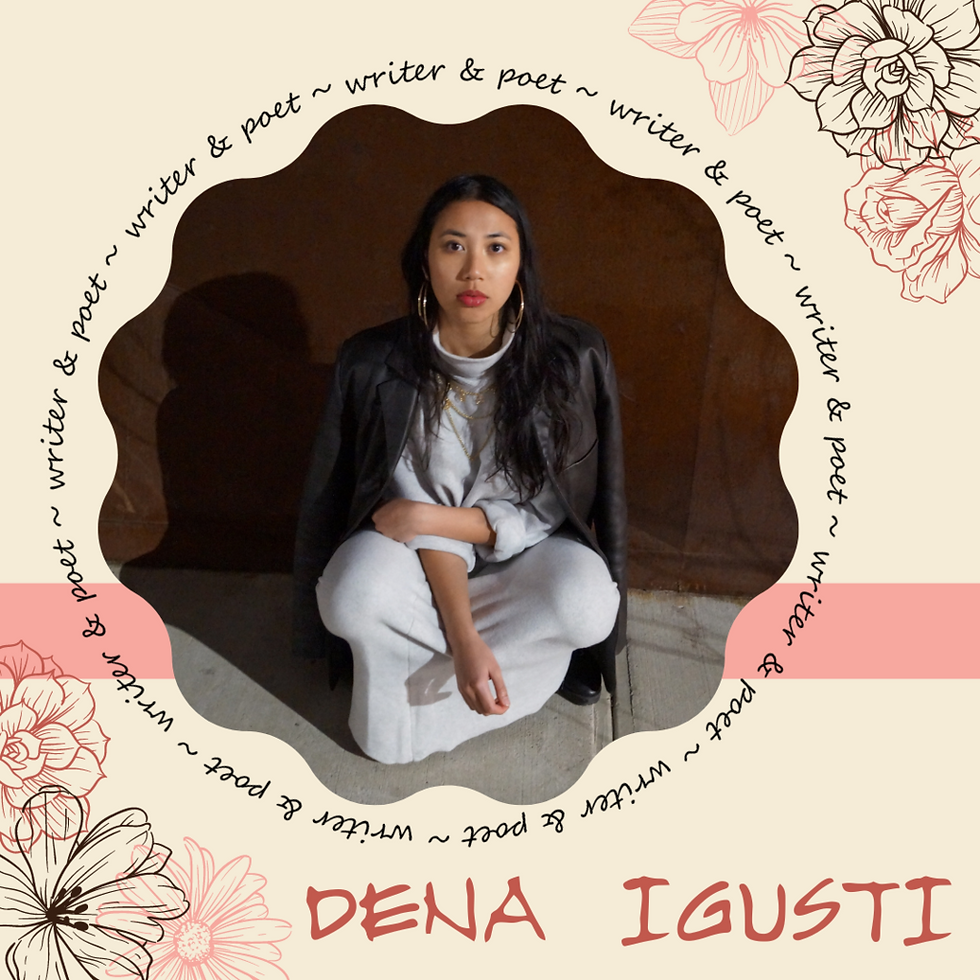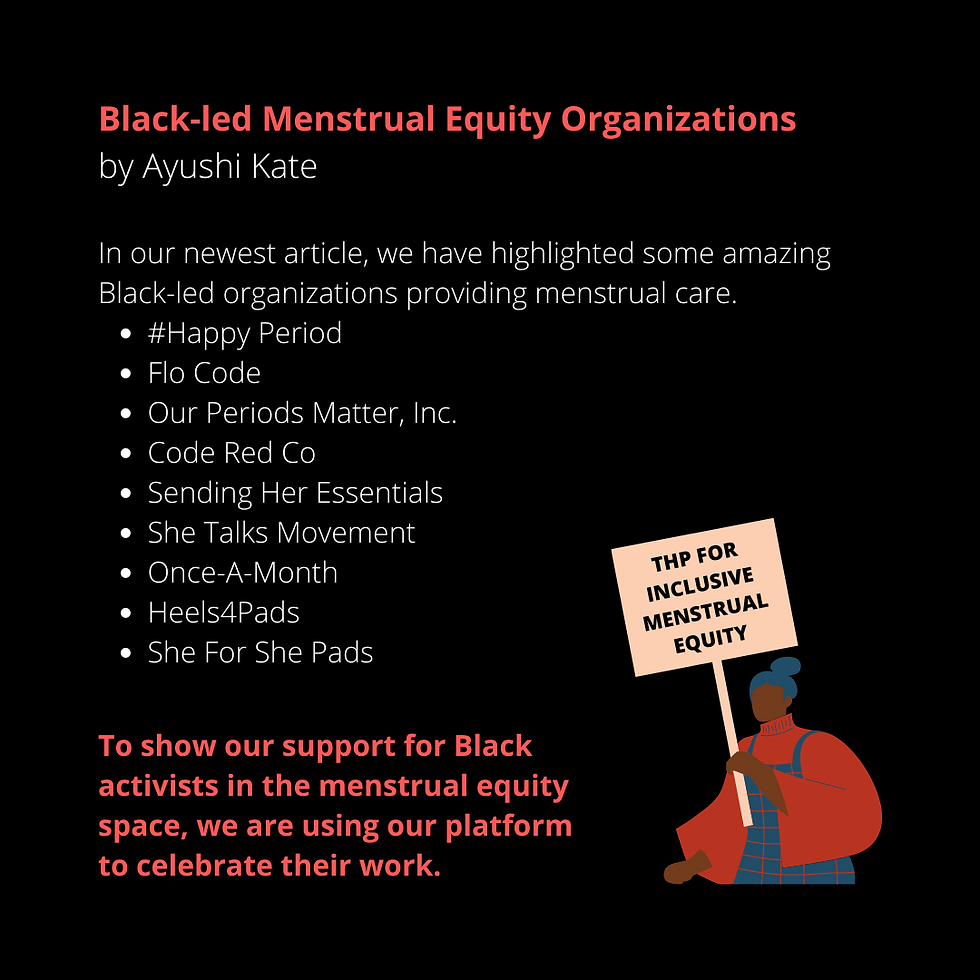Interview: A 19-Year-Old Political Candidate In Her Own Words
- Jun 3, 2019
- 5 min read
In 2019, Vietnamese-American game-changer Lily Lam made history when she ran for local office on a platform of greater mental health awareness and peer tutoring for high school students. Homegirl Project chatted with her about her campaign, her role models, and what comes next.
by Maggie Augustine

MA: What made you decide to run for the Fort Bend ISD Board of Trustees, especially considering how young you are?
LL: I wasn’t born in Texas. I was born in New York, where the education system is completely different. When I came down here, my first wake up call was the [Texas] standardized test, TAKS. When you go through the entire system, you begin to point out all your frustrations with the system- “Why is this happening? Who makes the decisions?” You don’t know why things are happening, you just do it, just go through the motions. I was a very verbal and expressive student in high school, and my teachers that I still speak to reached out to me and told me I would be perfect for [the School Board]. I always wanted to do something in the education system, try to find ways to make change, but during my school years I didn’t even know the Board existed. You have all these adults that are on the Board that bring great perspectives, like the business background and parents, but you don’t have the student that is directly impacted by the decisions being made there. How do they know the programs or changes being implemented work for the students? I have been out of high-school for two years, and things have already changed completely, being more technologically based than ever! I thought that if I wanted to make change, why not now? Why did I have to wait until later? The older you get, more things change, and you aren’t up to date. Why wait?
MA: What family, friends, or other cool women inspired you to become this advocate?
LL: My mother. She is small, but she is mighty! Also, my great-aunt, Tina. As long as I’ve known her, she’s been an outspoken person. She calls you out on your ridiculousness. [My great aunt] taught me to stand up for what is right, to be who you are because no one else is going to be you. Do it because you believe in it. My mom always taught me to be the truest version of myself, and my great-aunt has always told me to stand-up for what I want, no matter how people may view you in the moment. They put the fire in me. We live in a world that is becoming all about female empowerment, which is great. The frail girl is no longer the ideal. It’s about empowerment, no matter the gender.
MA: You advocate greatly for mental health recognition. What pushed you in this direction for advocacy?
LL: When I was going into middle school, [mental health awareness] wasn’t really that big. It didn’t really flare up until the last few years. I’m an occupational therapy assistant, so we rely heavily on mental health to get patients to the life they want to have. Mental health is all about taking care of yourself and feeling your emotions fully and healthily. When I was in high-school, I pushed all my emotions aside to get everything done. I didn’t understand how essential it was to take care of myself and I wouldn’t realize until I left high-school. Now, GPA and rank creates so much competition, and you forget to live in the moment and take care of yourself. That constant pressure and push, after a while, will break you. People don’t know how to take care of themselves. I started having panic attacks after I graduated, and I literally didn’t know what was happening to me! I thought I was dying! Further, Asian culture doesn’t really recognize concerns with mental health or speak about it. When you enter American society, you start to realize how important it truly is. It affects school performance, safety, everything. Even though you can’t really see mental health, it is so impactful and important.

MA: We live in one of the most diverse communities in the nation here in Houston. How have you been treated with respect, or even disrespect, that has created the person who you are?
LL: I came from a very small New York town [Rochester] that was not as diverse as Houston, so moving here was an extreme culture shock. I was bullied in middle school, and as horrible as it is, I think it’s a rite of passage for students everywhere. My self esteem was torn down, and in high school, I built it up to become the outspoken person I am today, a new identity I was proud of. People started to give me respect for that, and perceived me as strong willed and determined. That is something I want to push for woman all over the world- that they need to be themselves. I kept that mentality during the campaign. People definitely stated that “I was nineteen and I didn’t have business being part of [the Board]”, and sure, I may not know how to thoroughly read budget reports, but I do know what the students want and need. But for the most part, I got really positive feedback in my campaign, though I did prepare for the worst. It’s tough in the world- for political candidates, for minorities, for women, but it’s amazing how we are entering this new era of normalized female exceptionalism. It’s beautiful.
MA: How has being a Vietnamese- American woman impacted your journey so far?
LL: When I introduce myself, my first title is Vietnamese- American. I definitely stood out in New York, but in [Houston], I discovered other Vietnamese- Americans I heavily relate to, but also found ways to stand out. My family grounded me. They said “You are Vietnamese- American. Remember there is a balance between the two.” All my values and morales I received as being a woman of color created who I am. I was able to become proud and related to my identity when I moved down [to Houston]. I was given the opportunity to explore all different cultures, I’ve worn a saree before, I’ve worn a hijab before, and not a lot of people get that experience. I learned to respect not only my culture, but many other identities as well.
MA: What advice would you give to the girls that want to be advocates, whatever the form, and what to make a change in their communities?
LL: The biggest thing, if you want to make change, is to be genuine and authentic. We’ve worked too hard up to this point in time where woman have a voice- don’t waste it. Say what you’re passionate about, don’t beat around the bush. Be direct. You have a thirty second platform, make it count, wow them with how genuine you are. There will always be backlash. As long as you remain true to yourself then you changed the world, even just a little. Be strong willed. Remind yourself you are a strong independent woman! Little but loud. Moves you make may be little, but always loud.
MA: You’re nineteen years old and already making such a big impact wherever you go. What’s your next move?
LL: The biggest thing right now is laying out my options. I’m in a field of rehab right now, but I stepped foot into the political world. Right now, I want to spread more mental health awareness and special education support, and the exact way, I’m not too sure. But I now know that I have the ability to do so much more than I thought I could. Now that I can connect with others, I really want to reach out with students all over the district and beyond. I’ve been racking my head for an answer to my future since the campaign ended. I think the answer is that I want to make change that affects people’s wellbeing. Spread awareness. Uplift people with all the platforms I can.




Comments